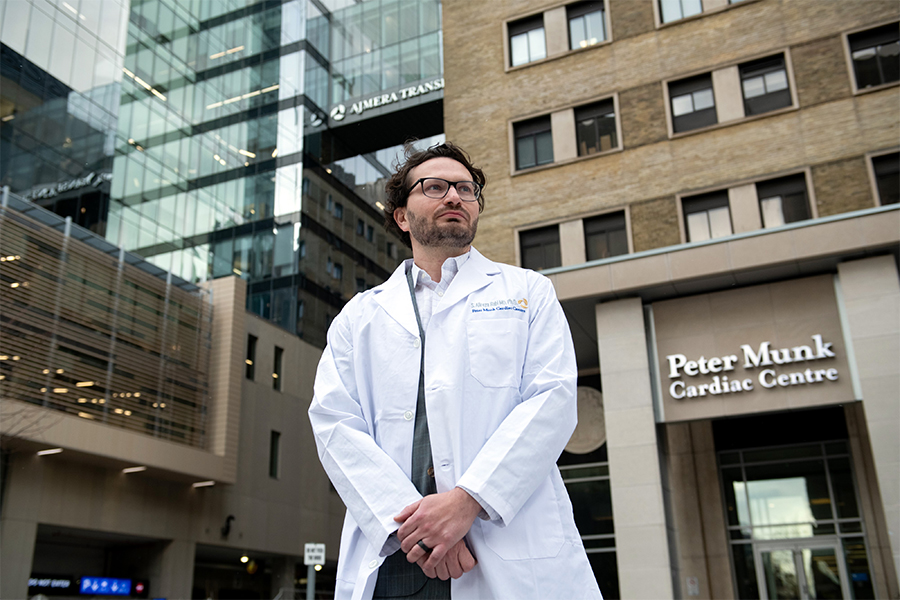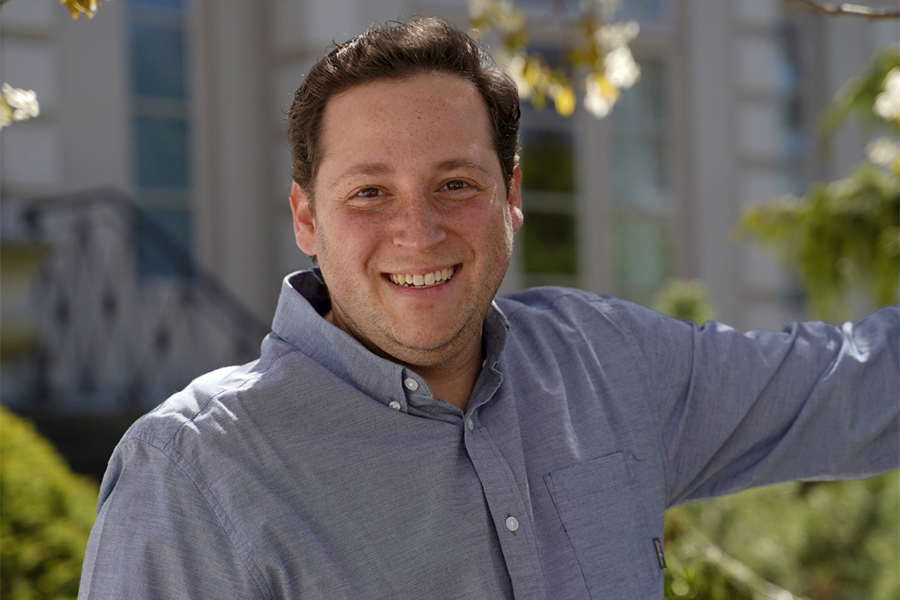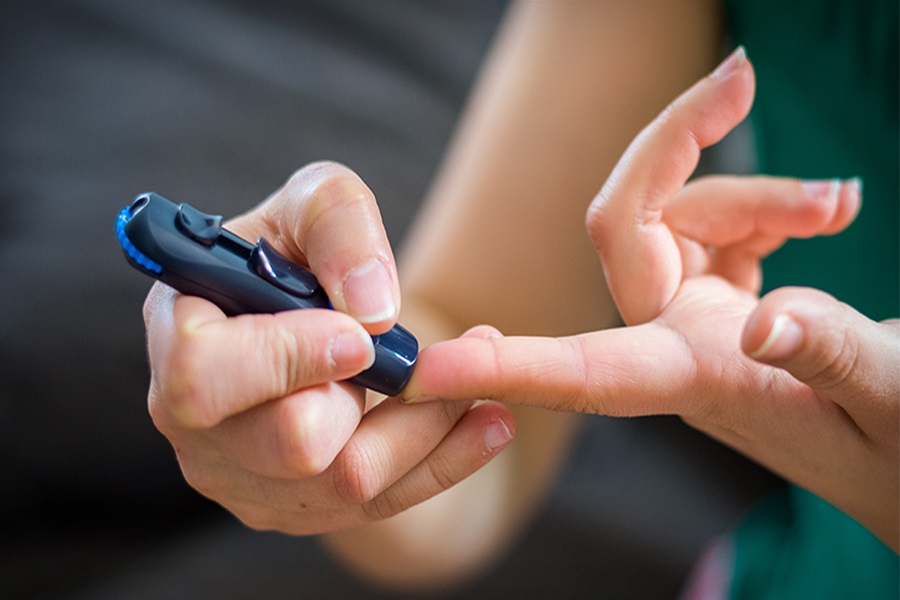
Stephanie MacAlpine knows what it’s like to live with a heart that’s failing.
Diagnosed with a genetic heart disease at just two years old, Stephanie battled symptoms for decades. From irregular heartbeats to shortness of breath and even frequent blackouts, she wasn’t sure how long she would survive.
So when a heart transplant saved her at 38, she wasn’t expecting the depression that followed.
“I kept asking myself: Did I really deserve this? Will I ever be able to do it justice?” says Stephanie. “I felt like I had to prove that I was worth it.”
According to Dr. Carla Garcia, Stephanie is not alone. Many heart transplant patients grapple with the emotional weight of living with another person’s heart — and can lead to feelings of guilt, grief and shame.
“I’ve never had a heart transplant patient who didn’t judge the life they were living or the sacrifice that was made,” says Dr. Garcia, a heart transplant psychiatrist at UHN.
“The heart means something deeper in our society. As a result, many people need help wrapping their head around how they’re supposed to live with someone else’s beating in their chest.”
That’s why UHN’s psychosocial transplant program offers specialized psychiatric care to help patients navigate those challenges. Through education, counselling and psychotherapy, Dr. Garcia and her team help heart patients manage the anxiety and fear that often come with the transplant.
“The whole point of a transplant is to make a patient’s life better,” says Dr. Garcia. “But if we don’t look after their mental health, we can actually make their lives worse.”
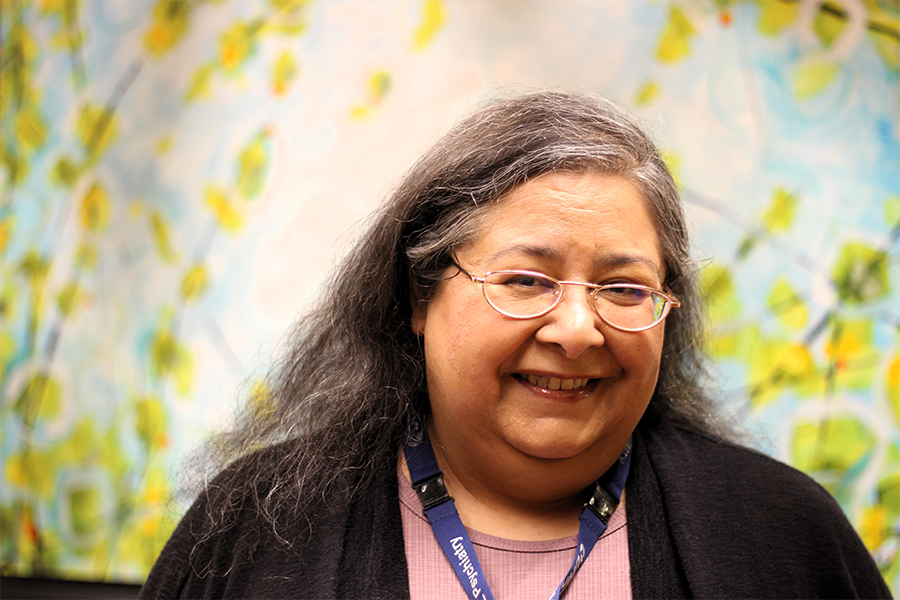
Dr. Garcia sees patients in her psychiatry practice all throughout the transplant journey, including before and after the procedure. She also works closely with a mental health nurse in UHN’s Ajmera Transplant Centre, who ensures patients receive timely and compassionate psychosocial support at their clinical appointments as needed.
“I can’t express how grateful I am to have access to these resources and how much they’ve changed my life,” says Stephanie.
Guilt before the gift
For some, guilt can take hold before the transplant.
When Michelle Rambarran learned she would need a heart transplant to survive — only days after giving birth to her first child at 29 — her initial reaction was to say no.
She required a small heart, one that would likely come from a child donor. She felt it would be better off saving a child instead.
“I didn’t want someone else’s death to be what saved me,” Michelle says. “Then I couldn’t stop thinking about what a child would have to go through if they needed this heart more than I did.”
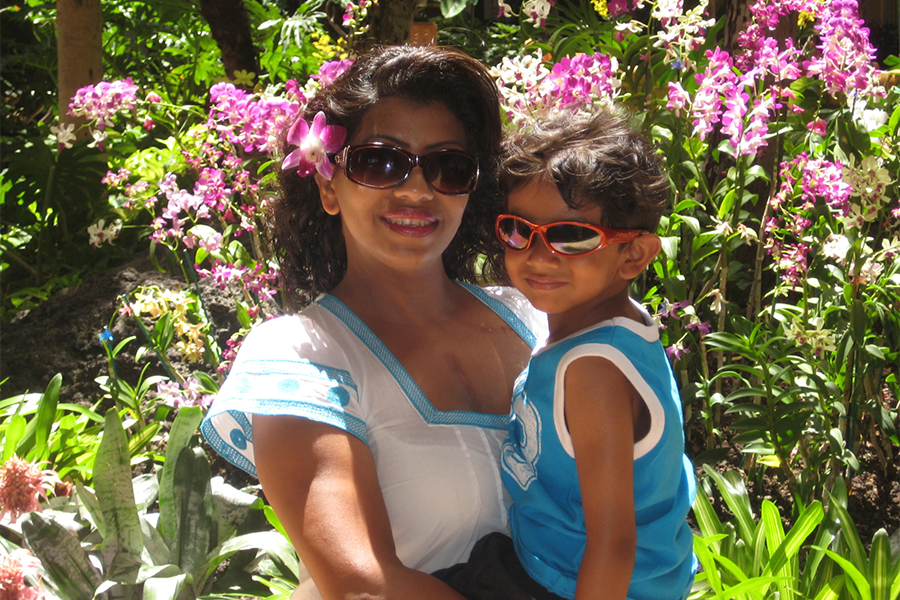
The mental health nurse gently guided her through the process and reassured that it was OK to say yes.
“Almost every patient will experience guilt at some point in their journey, and many don’t realize how normal it is,” says Caitlin Don, Psychosocial Nurse Coordinator in the Ajmera Transplant Centre.
In the clinic, Caitlin is a safe space for patients to share their emotions. She helps them identify what’s weighing on them and gives them practical tools to cope — whether it’s behavioural therapy, mindfulness, or simply talking it through.
“Part of what we do is normalizing those feelings and working together to find ways to manage them.”
When a heart finally became available, Michelle and her mother mourned the donor’s death and prayed for their family. The mental health nurse held her hand the whole way.
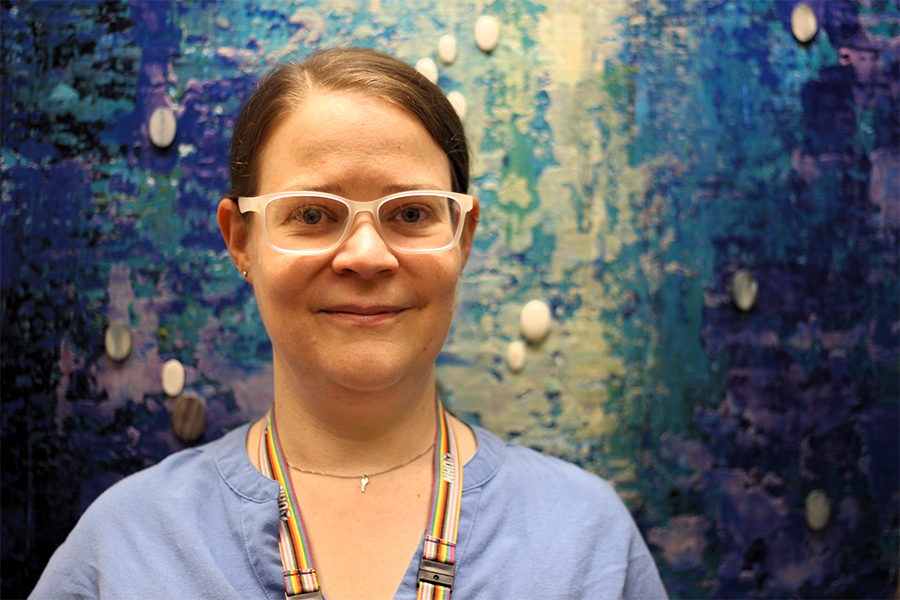
Nearly 12 years after her first, Michelle learned she would need a second heart transplant. Dr. Garcia and the mental health nurse were by her side to support her when the guilt returned.
“I had already been given a second chance at life,” says Michelle, whose heart was beginning to fail again. “Then here I was, asking for third.”
Dr. Garcia helped her work through the feelings and fear of judgment by educating her that transplant recipients come in all ages and life stages. No one is more deserving than another. Every life saved is a life worth saving.
Grieving a heart, welcoming another
For Stephanie, the guilt began after the transplant when she experienced an episode of acute rejection. Her life became a whirlwind of pain, biopsies, medications and appointments.
“I wasn’t sure if I had made the right choice or if I just made my life more complicated,” says Stephanie. “At the time, I didn’t believe it would get better.”
Getting physically adjusted to her new heart took a toll on her mental health. She began to grieve her old heart and had to learn to welcome a new one.
“I knew [my old heart] was unhealthy, but it worked hard for me,” says Stephanie. “The heart is like the sunshine of your body. When it goes out, what do you have left?”
More than anything, Stephanie struggled with the feeling that she needed to make up for all the time she had lost while she was sick. When she didn’t get better as quickly as she expected, she felt guilty.
“Sometimes you can’t help but think about the person who donated the most precious gift and if you deserve it.”
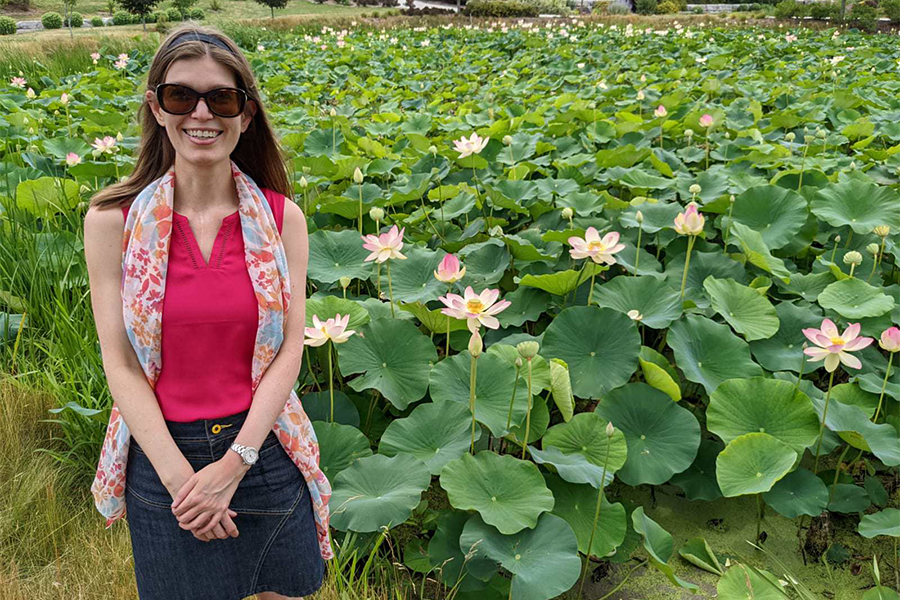
Healing the whole patient
Dr. Michael McDonald, Medical Director of UHN’s Heart Transplant program, says mental recovery is just as important as physical. The psychosocial transplant team is a key component of the transplant program — and is one of the best in the country.
“It’s one thing to be alive and to have a heart that works,” says Dr. McDonald. “It’s another thing to be living and enjoying the life you have. How well patients get on after their transplant is the ultimate marker of success.”
Dr. Garcia agrees. She says it’s a powerful reminder of what UHN strives to do every day.
“We want our transplant patients to be part of the rhythm of life and feel connected to their communities,” she says. “Part of our job is making sure they have access to the mental health resources they need so they can do that.”
In working with Dr. Garcia, Stephanie came to appreciate the changes in her life.
Caitlin helped Stephanie set goals and keep track of them on a daily basis. Even things that seemed insignificant after her transplant became something Stephanie took pride in, such as having the energy to bake a cake.
“I’m very happy that I went through the whole process,” says Stephanie. “It’s so important in that difficult recovery to have the support.”
Michelle, too, is doing well.
She wants others to know you can live a good life after a heart transplant — even two — despite the challenges.
“The best piece of advice Dr. Garcia gave me was to stop carrying the guilt,” says Michelle. “Just enjoy the life you’ve been given and what you have.”
By Shauna Mazenes

No one ever changed the world on their own but when the bright minds at UHN work together with donors we can redefine the world of health care together.
